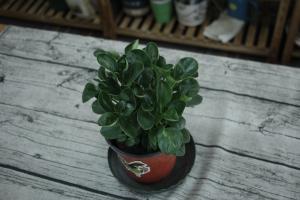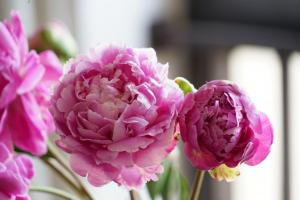Introduction
Indoor plants bring life and beauty into our homes. However, taking care of them can be quite challenging, especially during the winter months. One of the most crucial aspects of taking care of indoor plants is watering, and this can be affected by various factors, such as the temperature, humidity, and lighting conditions. In this article, we will discuss how often you need to water indoor plants in the winter.
Factors that Affect Indoor Plant Watering in Winter
Indoor plants require less water in winter compared to other seasons. This is because the temperature and humidity levels are usually lower, and the days are shorter. Additionally, indoor plants may not require as much water in winter since their growth rate slows down. However, the amount of watering your indoor plant needs during the winter months will depend on several factors:
The type of plant: different plants have different watering needs.
The location of the plant: plants placed near a heat source or in drafty areas may require more water.
The potting mix: the type and quality of potting mix can affect the plant's water retention ability.
The lighting conditions: plants exposed to bright or direct sunlight may require more watering.
How Often Should You Water Indoor Plants in Winter?
There is no one-size-fits-all answer to this question since the watering frequency will vary depending on the factors mentioned above. However, some general guidelines can help you determine the frequency of watering indoor plants in winter:
Check the Soil Moisture
The best way to determine if your indoor plant needs watering is to check the soil moisture. Insert your finger about one inch into the soil. If the soil feels dry, you need to water your plant. If the soil feels moist, then your plant is fine, and you can hold off watering. It is essential to avoid overwatering your plants since it can cause root rot, which can harm your plant's health.
Water Less Frequently
During winter, indoor plants need less water, so you should water them less frequently. Watering indoor plants once a week is usually enough. However, if you notice that the air in your home is particularly dry or if the soil in your plant's pot dries out within a few days, you may need to water your plant more often.
Adjust Based on Plant Type
Some indoor plants require more water than others, even during the winter months. For instance, tropical plants such as ferns and palms require more water since they prefer high humidity. Succulents, on the other hand, require less water since they store water in their leaves and stems. Therefore, it is essential to adjust your watering frequency based on the type of plant you have.
Conclusion
Watering indoor plants in winter can be challenging, but with these general guidelines and taking into account different factors, you can take care of your indoor plants and ensure their health throughout the winter months.

 how many times do yo...
how many times do yo... how many planted tre...
how many planted tre... how many pine trees ...
how many pine trees ... how many pecan trees...
how many pecan trees... how many plants comp...
how many plants comp... how many plants can ...
how many plants can ... how many plants and ...
how many plants and ... how many pepper plan...
how many pepper plan...































